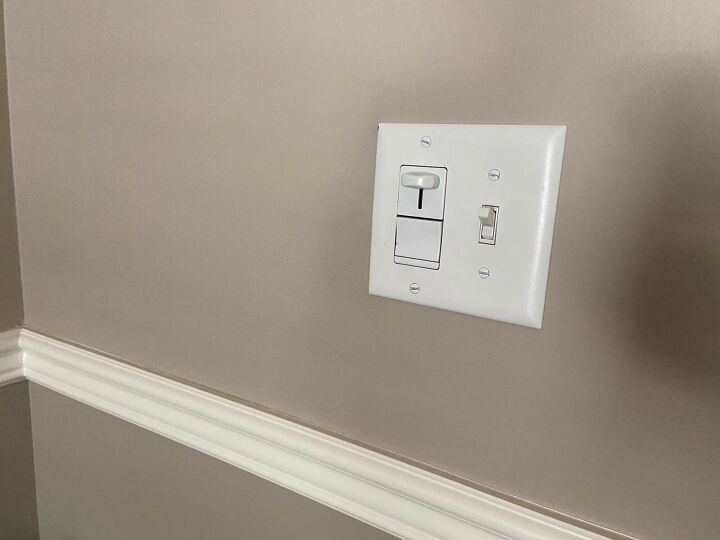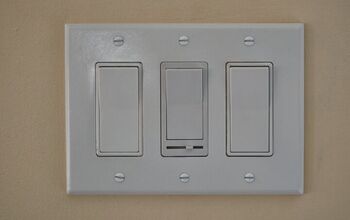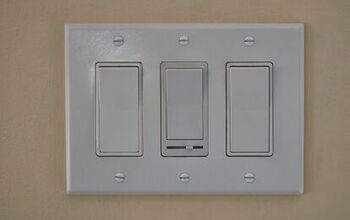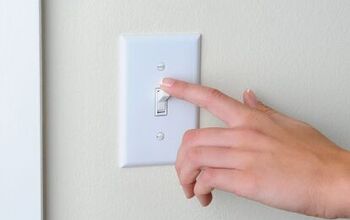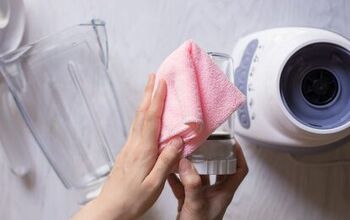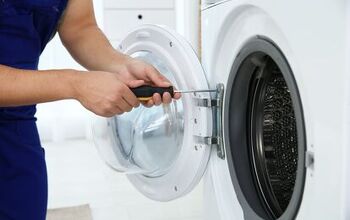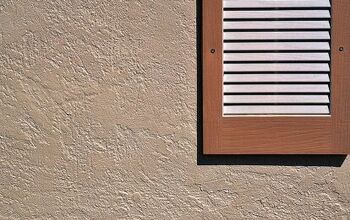Are Dimmer Switches Safe? (Find Out Now!)

Recently, I typed up an entire article about the way that dimmer switches run hot. As someone who grew up in a home where dimmers were a thing, I was pretty shocked to hear how hot they get. Dimmer switches apparently have a reputation for that. Unsurprisingly, some people believe they’re unsafe. I can’t blame them, if they never experienced it. It’s a debate worth discussing. Are dimmer switches safe?
Though dimmer switches have a bad reputation, the truth is that dimmer switches are exceptionally safe. They are just as safe as traditional switches. The only time that dimmer switches pose a fire hazard or an electrocution hazard is when they are improperly installed.
It’s totally understandable if you are worried about safety features in your home, especially if they have a bad reputation like dimmer switches do. It’s time to clear up this subject once and for all.
Do You Need to Hire an Electrician?
Get free, zero-commitment quotes from pro contractors near you.

Are Dimmer Switches Really Safe?
Dimmer switches are just as safe as regular light switches. While they may run hot, they do not pose a fire risk as long as they are carefully installed. If they were seen as a danger to homeowners and the people inside them, then there would be a ban against them. Heck, they wouldn’t even be sold in stores. Our federal building regulations are cool like that.
With that said, there are some areas where dimmer switches are against the local building codes. These are often regulations put into place out of people’s concerns for safety that may or may not be unfounded. If you are worried about building codes, then you may want to check with your local board.
Why Do People Think That Dimmer Switches Are Unsafe?
A lot of the stigma that comes from dimmer switches deals with the temperature that they have. Dimmer switches tend to run hotter than traditional light switches. However, we want to point out that running warm is normal here. Dimmer switches can run as hot as 195 degrees Fahrenheit without any kind of problem.
Another major reason for the worry is because they used to be more dangerous back in the 1950s and 1960s. With that said, things have changed drastically since then. So, you shouldn’t assume that your dimmer switches are on the same level.
Can You Use Non-Dimmer Bulbs With Dimmer Switches?
Some people believe that non-dimmer bulbs will cause the entire setup to be unsafe, but even this isn’t true. You actually can use non-dimmer bulbs with dimmer switches safely. The only issue that you might have if you use the wrong bulb is that your dimming quality won’t be as good. It may flicker, it may just look dull, or the bulbs may end up going bad faster.
How Can You Tell If Your Dimmer Switch Is Bad?
While it’s safe to have a dimmer switch at home, we still need to be realistic. A bad dimmer switch or a poorly installed switch can be dangerous in terms of electrocution. In fact, it can also be a fire hazard. These signs suggest that your dimmer switch is dangerous and should be replaced:
- Your dimmer switch is running way hot. If your switch is running so hot that you’re getting scorch marks, then you should hit the pause button. Scorch marks, a burning smell, and more can all be a sign of a box about to blow. Generally speaking, if you are worried about an overheated switch, you should act on it.
- The dimmer isn’t working the way it should. Are you noticing more flickers or weird control issues lately? It may be time to check the bulbs. If it’s not the bulbs, you will need to fix that switch.
- You hear a buzzing noise coming from your dimmer switch. I should explain this. A small, low humming buzz is totally normal. On the other hand, if you hear a crackling or hissing noise, you should shut down the dimmer switch immediately. That’s a very bad sign about the connections in your dimmer switch.
- The dimmer switch in question is more than 15 years old. Dimmers tend to last for a grand total of 15 years. Once they move past that mark, the wear and tear they have catches up. You might want to replace them if you notice that your dimmers are acting up past this age.
Do You Need to Hire an Electrician?
Get free, zero-commitment quotes from pro contractors near you.

Related Questions
Do dimmer switches waste electricity?
Believe it or not, dimmer switches can actually help conserve energy through the use of their dimming. By requiring less electricity to the bulbs, you can actually shave off a decent amount of electrical requirements. You may actually notice a dip in your electrical bills by switching to a dimmer switch.However, it’s important to remember that the dimmer you choose can make a huge difference in how much you save. If you want to get the best possible savings, try to choose an eco-friendly dimmer switch for your home. Every little bit counts.
Is it safe to leave a dimmer switch on overnight?
Absolutely! It’s totally safe to leave a dimmer switch on overnight, just like you would a traditional light switch. Dimmer switches can be left on indefinitely without any kind of worry about burnouts. While your roommates might not want you to do that, it’s not going to harm your actual dimmer setup.Believe it or not, leaving a dimmer switch on overnight can help make your lightbulbs last longer. So, it actually can be more beneficial to your home than most people would let you believe.
How much light can you link to a single dimmer switch?
The number of lights that you can link to your dimmer switch depends on the wattage. Most dimmer switches are rated for a maximum wattage of 600 watts. This means that you can usually run 10 60-watt lightbulbs without issue. Any more, and you will have a problem. To find out how many bulbs you can run, find out the wattage rating for your switch then see how many total watts all your bulbs will require.

Ossiana Tepfenhart is an expert writer, focusing on interior design and general home tips. Writing is her life, and it's what she does best. Her interests include art and real estate investments.
More by Ossiana Tepfenhart



